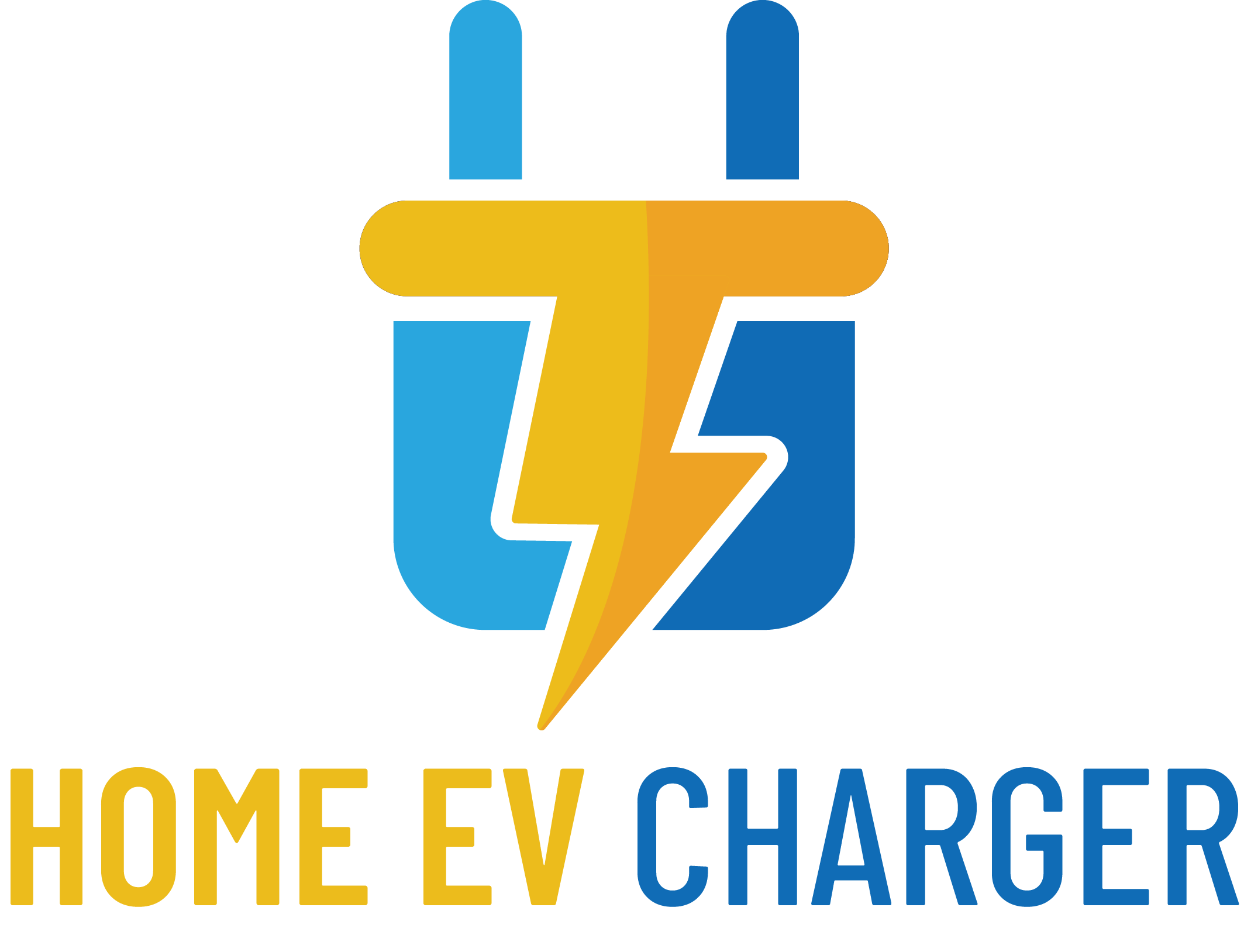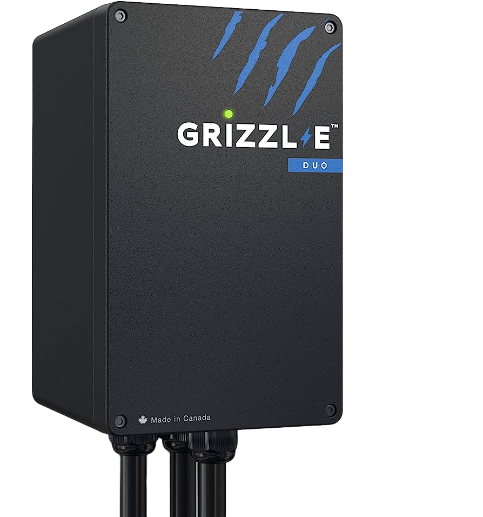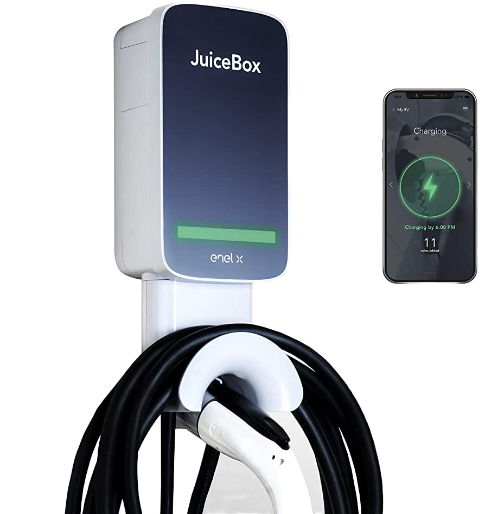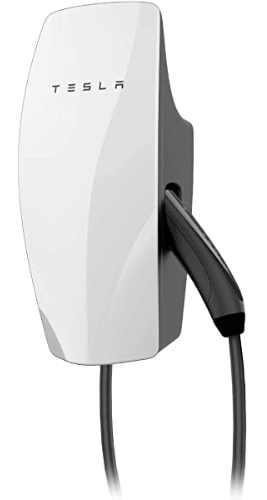Electric Vehicle Home Charger Installation in Toronto
Thinking Of Installing A Charging Station In Your Home? Talk To Our Expert For Free Today!
- Licensed EV Electricians
- Certified EV Charger Installation Company
- 1 Year Job Warranty
Fill Out The Form Bellow To Get Started
If you have recently acquired an electric vehicle (EV), it is highly recommended that you consider installing an EV charger at your own home or residence to ensure optimal convenience and accessibility.
Price $1,749
What is included:
- Visit from our certified technician to access the job
- Installation by licensed and insured electrician
- Permit Costs, Paperwork, Approval and Inspection by Electrical Safety Authority (ESA)
- Installation of the breaker in the panel
- Installation of the receptacle in the desired location
- Up to 30 feet of wire from the panel to the desired location
- 1 Year warranty on the job
- Cleanup and disposal of garbage
EV Chargers
Electric vehicles (EVs) are becoming increasingly popular, and for good reason. They offer a number of benefits over traditional gasoline-powered vehicles, including lower emissions, lower operating costs, and improved performance. However, one of the biggest challenges to owning an EV is charging.
Grizzl-E
Grizzl-E Level 2 Electric Vehicle (EV) Charger, Indoor/Outdoor EV Wall Charging Station.
Wireless
Fast Level 2 Hands-free Charging Station. Now for Model S, i3, LEAF, & Volt.
Tesla Wall
Tesla Wall Connector Supplies A Full Charge Without Ever Leaving the House.
Our Trusted Partners


















Toronto's Public EV Charging Station Map
- One of the biggest drawbacks is that they take longer to charge than home charging. This is because public charging stations typically use Level 2 chargers, which can take several hours to fully charge an electric car.
- Fast charging stations are available, but they are not as common as Level 2 chargers. This means that you may have to wait in line to use a fast charging station, which can add to the overall time it takes to charge your car.
- Even if you can find a fast charging station, you may still have to wait for your car to charge. This is because fast charging stations are often in high demand, especially during peak travel times.
As a result of these factors, public charging stations can be inconvenient and time-consuming. If you are planning a long road trip, it is important to factor in the time it will take to charge your car at public charging stations. You may also want to consider installing an at-home charging station, which can make it easier and faster to charge your car.
Here are some additional disadvantages of public charging stations:
- They may not be available in your area. The availability of public charging stations varies depending on the location. If you live in a rural area, you may have to travel a long way to find a public charging station.
- They may be expensive. The cost of charging your car at a public charging station can vary depending on the type of charger and the time of day.
- They may be unreliable. Public charging stations can be unreliable, and they may not always be working properly. This can be a problem if you are relying on a public charging station to charge your car.
Overall, public charging stations can be a convenient way to charge your electric car. However, it is important to be aware of the potential disadvantages before you use them.
EV Chargers 101
Choosing the Right EV Home Charging Station
The purchase of an electric vehicle (EV) is an exciting decision, but it can also be daunting. One of the first questions that many new EV owners ask is, “What charger should I buy?
There are two main types of EV chargers: Level 1 and Level 2. Level 1 chargers use a 120-volt outlet and can add about 3-5 miles of range per hour. Level 2 chargers use a 240-volt outlet and can add about 10-20 miles of range per hour.
If your daily commute is less than 30 miles, a Level 1 charger may be sufficient. However, if your commute is longer or you plan on using your EV for long road trips, you will likely need a Level 2 charger.
When choosing an EV home charging station, there are a few factors to consider, including the amperage of the charger, the type of plug, and the installation cost. It is also important to make sure that the charger is compatible with your EV.
EV Home Charger Installation Toronto
Installing an EV home charger is a great way to make the most of your electric vehicle. It allows you to charge your car quickly and conveniently at home, and it can save you money on your energy bills.
The installation of an EV home charger is relatively straightforward, but it should be done by a qualified electrician. Any qualified electrician can install an EV charger, so homeowners do not need to pay a premium for a specialized EV charger installer.
The cost of an EV home charger installation in Toronto, CA will vary depending on the amount of wiring required. If the EV charger is installed far away from the home’s breaker box (service panel) or the installation requires a service panel upgrade, the cost could be closer to $3,500. However, in most cases, the cost of an EV home charger installation will be between $700 and $3,500.
If you are considering installing an EV home charger in Toronto, CA, be sure to contact a qualified electrician to get an estimate. The cost of the installation will vary depending on your specific needs, but it is a worthwhile investment that will save you money in the long run.
Home EV Charger is the best EV Home Charging Station Installer In Greater Toronto Area. Trusted by EV and Home Owners. We can help you install the best EV home charging station type for your Electric Vehicles.
EV Chargers FAQ's
The Right Charging Station For Your Home
Level 1 Charging Station
Every new EV is sold with a Level 1 charging station. It can be plugged into a standard household 110-volt grounded wall outlet and usually requires no upgrade to your utility panel. A Level 1 charging station will deliver about 5 miles per hour of charge.
This ready-to-go option might be right if you have a short commute, drive a plug-in hybrid such as the Kia Niro Plug-in Hybrid, are offered workplace charging, or if you’re able to charge your vehicle for 8 or more hours each night.
Level 2 Charging Station
Level 2 charging stations are four times faster than Level 1 and can provide about 25 miles per hour of charge. Level 2 stations require a professionally installed 240-volt outlet on a dedicated circuit. If you’d like one installed in your home, contact a licensed electrician to get an estimate and to determine if a permit is required.
Level 2 might be the right choice if you drive a battery EV such as a Tesla Model 3, as these cars have larger batteries that require longer charging times. Drivers with longer commutes or who want a faster charge or a longer electric driving range should also consider choosing a Level 2 charging station.
Charging on the go
If your vehicle supports them, look for publicly available DC fast chargers when you’re on the road. These high-power stations can charge a battery to 80 percent of capacity in 30 minutes or less. Check with your manufacturer for more information on DC fast charging for your EV.
Why Does It Matter What Type Of Basement You Have?
Most of the electrical panels are located in the basement.
If the basement is unfinished then it will be easier to run the wire required for installation.
If the basement is finished we will provide you with options so you can make a decision that suits you best.
- Some options can include: running the wire through the ceiling, alongside the wall on the ceiling, or through outside
Can We Run Wire Outside?
Sometimes it makes sense to run the wire outside. At that point we will have to place the wire in a special protection tube (Metal or Plastic) in order to get it to the destination.
Are The Electricians Licensed And Insured?
Yes. All of our electricians are Master electricians and hold a valid license with the province of Ontario. They are also insured.
What About Electrical Panel?
Each house is unique and have a unique electrical panel.
To instal a breaker in the electrical panel, it is required to have at least 2 empty slots for a breaker.
If the panel does not have space or not powerful enough to instal breaker then panel replacement will be required.
Here are some examples of panels we can instal and some that are required replacement.
Most of the panels are between 100-200 amps.
Most common manufactures are: Siemens, Eaton, Schneider Electric, Square D, General Electric, ABB, Cutler-Hammer, Leviton, Legrand, Murray, Federal Pacific, Zinsco, Westinghouse, Challenger, Wadsworth
What Cars Do You Install Chargers For?
We instal charging outlets for many different kinds of vehicles. 30A, 40A, 50A, 60A, 80A
Here are some of the cars that we installed for:
Tesla Model – 50-75 amps
F-150 30 amps
IONIQ 60 amps
Chevrolet Bolt EV – 40 amps
Nissan Leaf – 30 amps
BMW i3 – 32 amps
Volkswagen e-Golf – 30 amps
Hyundai Kona Electric – 50 amps
Audi e-tron – 40 amps
Jaguar I-PACE – 50 amps
Kia Niro EV – 50 amps
Porsche Taycan – 60 amps



